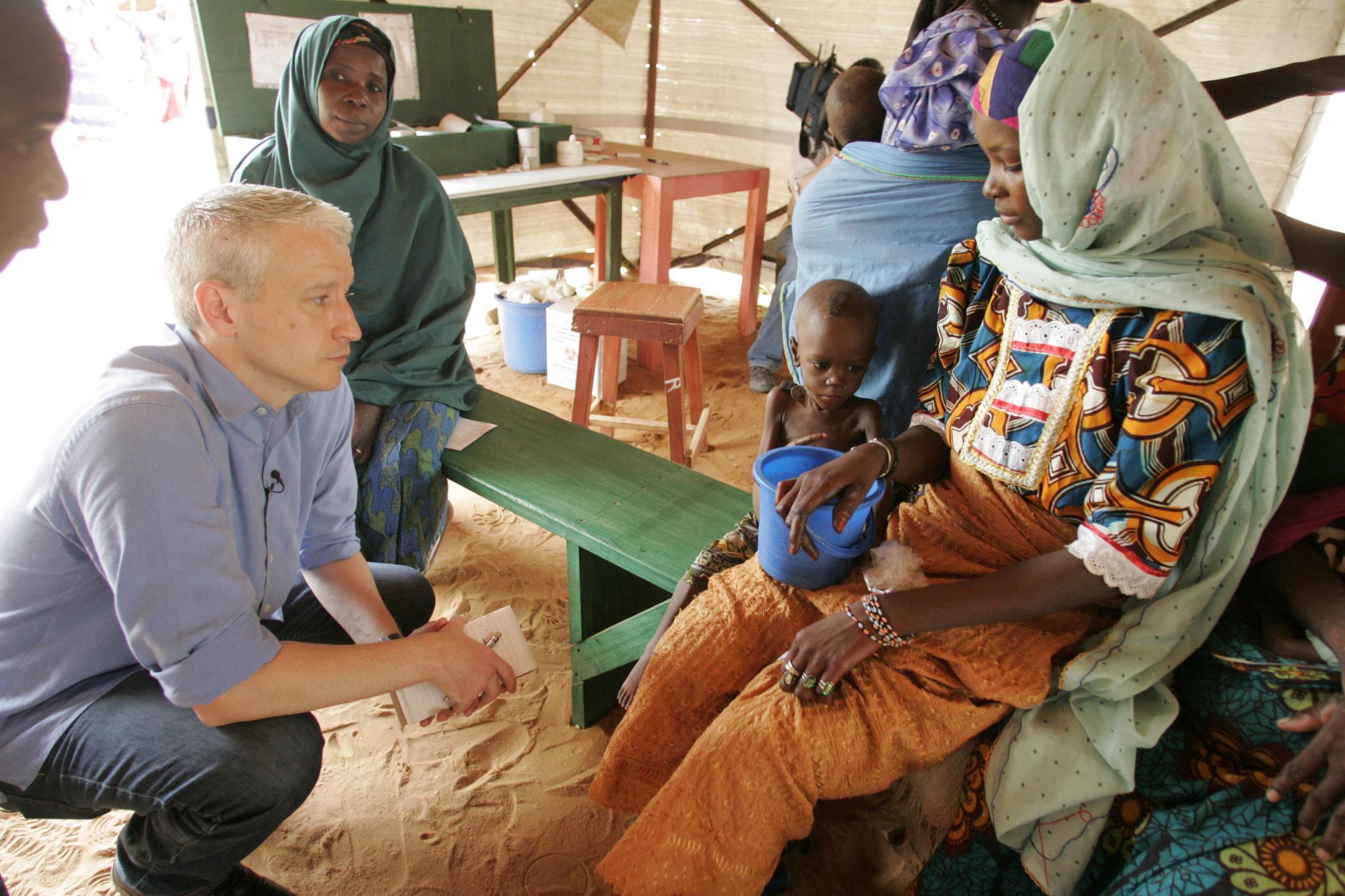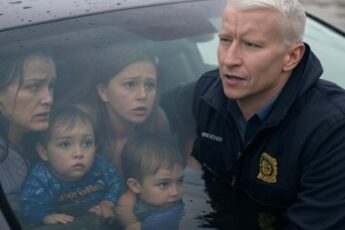A rare moment of raw humanity as Anderson Cooper sits down with victims of one of the world’s most devastating food crises
Anderson Cooper, known for his calm demeanor and fearless reporting, has delivered some of the most powerful moments in journalism. But few have been as emotionally charged as his recent trip to Niger, where he sat down with a mother and her malnourished child, giving the world a rare and heartbreaking glimpse into the human toll of the famine devastating the region.
The famine crisis in Niger reaches a breaking point
Niger, one of the world’s poorest countries, is facing one of the worst hunger crises in recent history. A combination of prolonged droughts, political instability, and soaring global food prices has left over 4 million people at risk of starvation — with children making up the vast majority.
International organizations have sounded the alarm, but the global response remains slow and fragmented. That’s why Anderson Cooper, as part of a special CNN feature, decided to travel to the heart of the crisis to speak directly with those affected.
A mother’s story that shook even a seasoned journalist
In a small, makeshift shelter on the outskirts of Maradi, Cooper sat down with Amina, a 32-year-old mother of four, and her youngest child, Halima, just two years old but weighing less than half the healthy weight for her age. The child clung to her mother’s chest, weak and silent.
The cameras rolled silently as Amina told her story — not with anger, but with quiet resignation.
“We had food once. We had goats, millet, hope,” she said softly through a translator. “Now we have nothing but this sun, and the waiting.”
Cooper, visibly moved, asked her what she needed most.
“Just a little food,” she replied. “And for my daughter to live.”
No scripts, no pretense — just human connection
What followed wasn’t a typical interview. Cooper set aside his questions, held the child’s hand, and simply listened. It was clear that this wasn’t about getting a soundbite. It was about bearing witness.
The broadcast later aired as part of CNN’s “Voices from the Edge” series, but the unedited footage, later shared online, captured something even more powerful — a moment of profound silence, where two people from vastly different worlds simply acknowledged each other’s pain.
Viewers react: ‘The world needs more of this kind of journalism’
Social media exploded in response to the segment. Within hours, #NigerFamine trended on Twitter, and donations to international aid groups surged.
“This is what journalism should be,” one viewer commented. “No ego, no politics — just truth, compassion, and urgency.”
Another wrote, “Anderson Cooper didn’t just report the story. He became part of it.”
Cooper speaks out: ‘We can’t look away anymore’
Shortly after the segment aired, Cooper spoke briefly during his nightly broadcast.
“We are used to numbers,” he said. “4 million starving. 1 child dying every two minutes. But when you meet even one of them — one mother, one child — those numbers become unbearable.”
He urged viewers not just to feel sympathy, but to act. “We can’t look away anymore. These children deserve more than silence.”
Behind the scenes: The physical and emotional toll
According to CNN crew members on the trip, Cooper refused any special treatment. He slept in the same rough conditions as the locals, carried supplies, and joined aid workers in delivering high-nutrition supplements to severely malnourished children.
“He skipped meals,” one producer said. “He gave his food to the kids when the cameras weren’t rolling.”
Crew also reported that Cooper became visibly emotional after his time with Amina and Halima, retreating to a quiet area of the camp where he remained alone for nearly an hour.
From journalist to advocate — a new role for Cooper?
While Cooper has always maintained journalistic neutrality, many are now calling on him to become a more vocal advocate for humanitarian causes, particularly given his reach and influence.
A senior official from UNICEF publicly thanked Cooper for shedding light on the crisis, saying, “We’ve been trying to get attention on Niger for months. This changed everything overnight.”
How viewers can help: Action steps from the ground
In the final moments of the segment, CNN provided a list of organizations actively working in Niger, including:
-
UNICEF
-
Save the Children
-
Médecins Sans Frontières
-
World Food Programme
Cooper encouraged viewers to donate, volunteer, or simply share the story.
“Even awareness is a form of action,” he said. “But if you can give — even a little — it could mean one more child sees another day.”
Amina and Halima’s fate — and the millions like them
After the interview aired, CNN remained in contact with local aid groups. According to an update from the ground, Halima was taken to a nearby clinic and placed on an emergency feeding program. Her condition remains serious but stable.
“She smiled yesterday,” a nurse reported. “Just a little. But it gave us hope.”
As for Amina, she remains in the shelter camp, helping other mothers care for their children. She told aid workers she hopes to return to her village one day — but only if the rains return.
The final word: A silent promise from one father to another
At the end of the segment, as Cooper prepared to leave, he turned back to Amina and Halima, knelt beside them, and whispered something off-mic.
Later, when asked what he said, he replied quietly:
“I just told her… I have a son too.”






